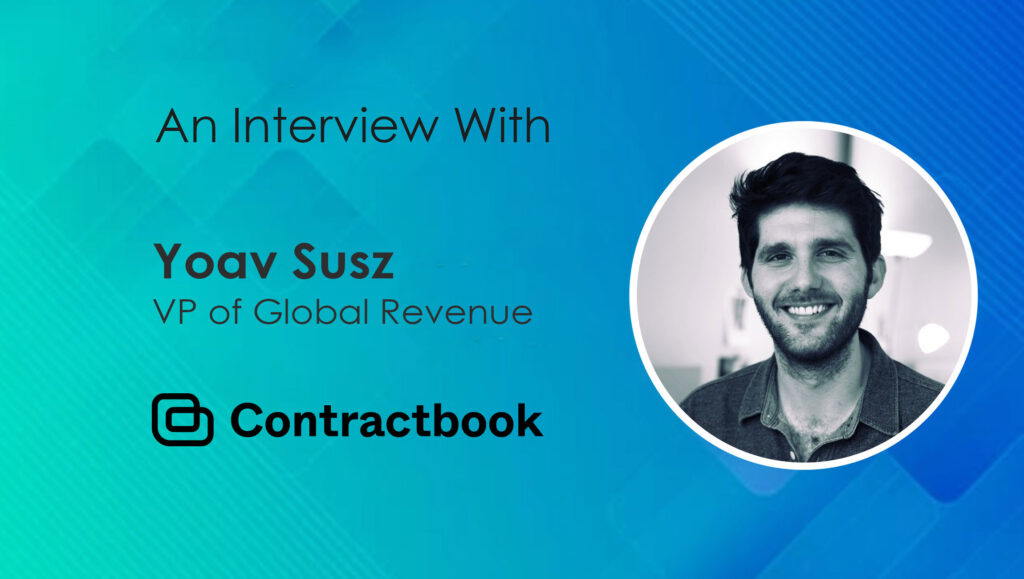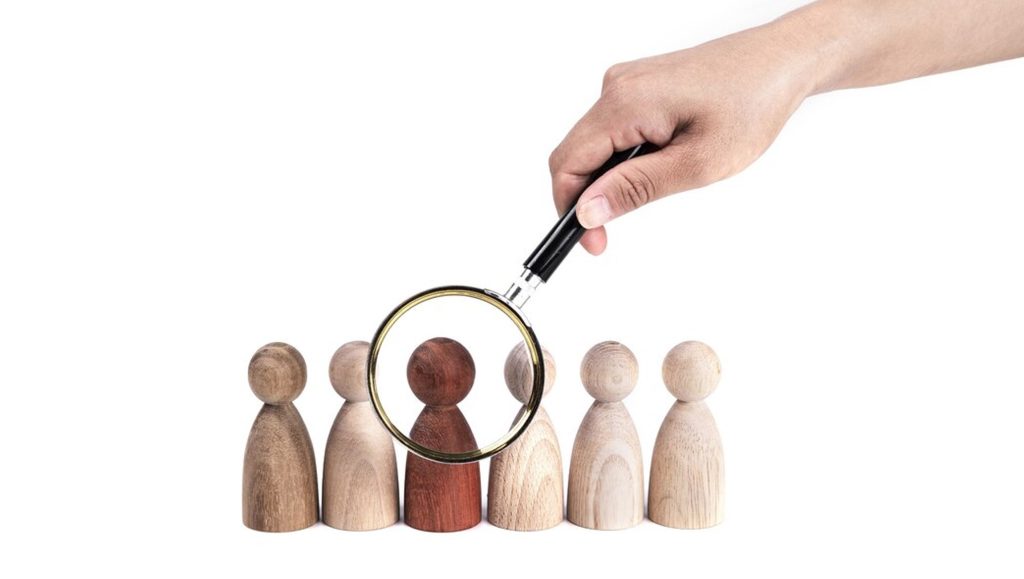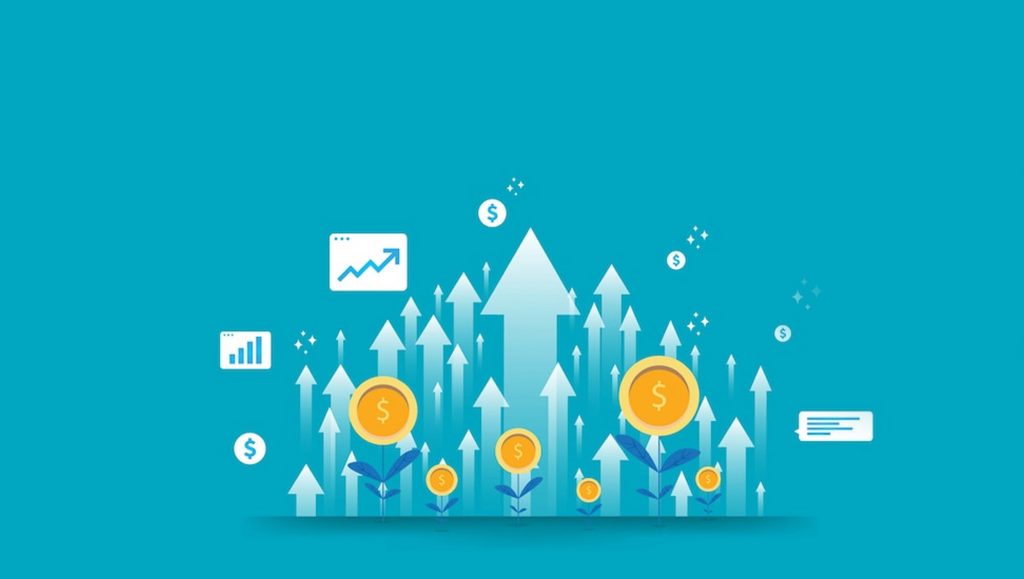Yoav Susz, VP of Global Revenue at Contractbook talks about the need for modern-day sellers to act more like brand consultants as the role of sales evolves across B2B:
________
Welcome to this SalesTechStar chat Yoav, tell us about yourself and your role at Contractbook…
Thanks for having me! I’m the VP of Global Revenue at Contractbook which means I manage our sales and customer success teams. Since joining the company, I’ve also been in charge of developing our expansion strategy in the US market. It’s been a crazy couple of years, with the platform experiencing five-fold growth.
I think it’s safe to say that my route into sales has been far from conventional. I’ve worked in the military, practiced as a lawyer and more recently, specialized in helping European companies expand into the US. I think having a tapestry of experience in different working environments can be extremely valuable.
As a revenue leader, what are some of the core practices and revtech that you use to drive end goals?
Understandably, people’s biggest concern is about themselves and solving their own problems, so the most important thing for any sales leader is to cultivate a culture of listening. To understand the specific problems they face, we must learn to have real conversations with the prospects and not just go through a checklist of questions.
This is what makes Gong and other call recording technologies the most important revtech, as it enables the reps to go back and listen to what they did. We can coach the sales reps and teach them to have better conversations. Before Gong, there was no scalable way to close the loop and help your sales reps improve.
When it comes to driving revenue and sales-marketing alignment, how do you feel B2B teams can improve their core processes?
I believe it’s a gradual process. I’ve always imagined it like the rings on a dart board, getting smaller and more focussed towards the bullseye. In this analogy, the first stage is nailing your core value propositions and what job you’re doing. It takes a lot of back and forth communication to ensure that sales and marketing is on the same page. Messaging and ads on the website is one thing, but sometimes what converts in your sales calls is something completely different, so it starts with broad alignment and understanding.
Next stage is tracking what is working well, and what isn’t. Decipher what messages and campaigns people are responding to, and through which channels. Not just the theoretical, but what is actually working. For sales and marketing to work in complete harmony, you need alignment across everything. Ask yourself what content are we producing? What events are we going to? Who are we converting exactly? This way, everyone will end up working closer together across the same accounts with the same messaging. In due course your alignment will become more focussed.
What key tips would you share with revenue and sales teams today as they try to drive business impact in a recessionary climate?
In this type of climate, it’s especially important to remind yourself that nobody cares about you and your product. They care about themselves and their products. With this in mind, it is really important to be able to easily address what you are going to impact. By this I mean, how things are going to look different once they buy from you.
If someone is buying your software to take what they are doing today and bringing it online, that’s fine, but it does leave you vulnerable and easily replaced. I believe to prosper in a recessionary climate, we must drive ‘process change’ and really modify the way people work. If you cannot change the way people are fundamentally working, you risk becoming a nice-to-have rather than a must-have.
Finally, in this type of economy, you need to protect people from the downside. It’s not enough to make things a little easier. At the end of the day, to convince people your product is valuable, you must prove that you can save them real time and money.
Read More: The Team Sport Approach: 3 Keys to Fostering Sales and Marketing Alignment for Revenue Growth
A few thoughts on the future of B2B sales and how you feel roles will change in this system to meet evolving market needs?
Sales have changed a lot. Before Linkedin, the reason we needed sales professionals was because they knew who worked where and who made the decisions. That has been taken over by technology. Then they became the gatekeepers who allowed prospects to see the product. Now, tools like G2 and Capterra enable customers to make their own decisions way before the sales cycle begins.
As the business world evolves, the role of sales professionals moves further away from being gatekeepers and more towards consultants. We’re responsible for helping customers to get the best out of technology. In truth, the rudimentary jobs are disappearing. You don’t need a sales rep to buy a simple license. But when it comes to things like robotic automation, people don’t even know what they’re buying or what it is capable of. This is where sales people become consultants who can listen to what buyers are trying to achieve and show them how they can do it differently.
And finally, a few views on salestech as a segment and how you feel this space will shape up over the next few years?
It has exploded over the last 10 years. Sticking with the trend, a lot more product discovery will happen without sales. Demo-building platforms like Walnut, can provide an easy way for people to experience a product and understand the value without going through a sales person.
I also think people are tired of cold calling, so marketing and sales will continue to work closer together. The differentiation will not be drawn in the same way. The less consultative sales need to be, the more the two departments will merge.
Last but not least, sales people have to add value. If a sales organization is not set up to help people and improve the way they work, they are going to dwindle, because the buyers will have an easier time exploring the value of a product without the need for human intervention. In general, everything that doesn’t have a consultancy piece to it will be fixed by technology – whether it’s exploring a product or generating flawless sales agreements. A lot is going to change, but there’s also a whole lot to look forward to.
Contractbook’s contract management software empowers modern businesses to turn manual processes into fully automated workflows. Funded by investors including Tiger Global, Bessemer Venture Partners, and Gradient Ventures, Contractbook was founded in Copenhagen in 2017 and serves over 250,000 users in more than 85 countries
Yoav Susz is VP of Global Revenue at Contractbook.
Missed The Latest Episode of The SalesStar Podcast? Have a quick listen here!
Episode 139: Decoding Enterprise Sales Fundamentals with Molly McKinstry, Head of Enterprise Sales, Calendly
Episode 138: Marketing and Ops Tips for B2B Teams with Camela Thompson, VP Marketing at CaliberMind
Episode 137: Sales and Revenue Ops Best Practices with Jamie Shanks, CEO of Pipeline Signals & Sales for Life






















